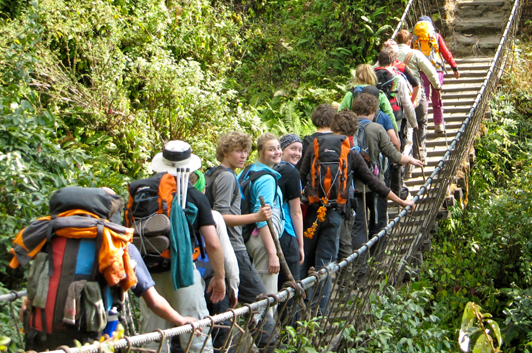Tourism sector is considered very sensitive across the world. Tourists generally make decision to visit or not visit a place on the basis of positive or negative feelings. A larger number of tourists come to Nepal on repeat visits for the beauty of mountains, Nepali hospitality and traditions instead of new destinations. It will not be good for the country if these tourists with immense love and goodwill toward Nepalis were to opt for other destinations due to repeated political movements in different names. We have failed to understand the sensitivity of our tourism industry, or convince the political parties about that. All the political parties, while celebrating the Nepal Tourism Year in 2011, had declared from Tundikhel that they will never call a strike in the country. But strike is flourishing as our political culture with the parties failing to stay true to their promise. The culture of strike in Nepal has reportedly been imported from Bihar of India. It is not that strike enforcers are unaware about the negative impact of strikes on every sector of the economy. Extending strike to two months in tarai with an intention of bringing the government down to its knees has been hitting workers, farmers and lower class in the plains hard. Almost 1.50 million households that depend on daily wages are now struggling for two square meals. At least 300,000 workers in the transportation sector are also struggling with vehicles stopped in lack of fuel. Transportation workers have started to bring out protest rallies after being forced to sleep on empty stomach.
Our tourism sector has currently been hit badly by the continuous strikes, and undeclared blockade by India. Hotels are empty even during the main tourist season. The major tourist destinations are quiet in lack of tourism activities. International flights are being cut due to fuel crisis. Tourists from European countries, Japan, China and other countries are so sensitive that they never visit a country again if they face inconvenience in that country once. Tourists have started to cut their visit short and return home due to the current problems in Nepal while bookings for the coming months have also been cancelled. The Visit Nepal Year 2011 had revived the Nepali tourism industry and tourist arrival had reached 800,000. The industry, a major source of earning foreign currency, was expected to become more vibrant after promulgation of the new constitution. But tourists have been scared after the earthquake on April 25, two months of strikes in tarai, and the Indian blockade. It is not difficult to discern that tourists are returning home with negative image of Nepal if we listen to them talking at departure terminal of the airport.
The industry has faced the most difficult time at a time when non-resident Nepalis (NRN) and domestic investors alike are spending massively on construction of new five-star hotels and expansion of the existing resorts. This will not just put their investment on risk but also affect future and income of millions of Nepalis involved directly and indirectly in the sector. All the parties concerned, therefore, must become responsible and look for resolution of the current problem. We should even seek international mediation for resolving the diplomatic problem if necessary. The NRNs living across the globe must also take initiative to save not just the tourism industry but the overall economy at this hour of crisis.
Published on: Karobar (Oct 7, 2015)











